Mindblown: a blog about philosophy.
-

China Malam Ini, Timnas Indonesia U-20 Mengompori Pemain Keturunan China untuk Mengisi Skuadnya.
di awal paragraf 1 tambahan Anchor Text AyoSport dengan link ke ayoport.com Indra Sjafri, pelatih Timnas Indonesia U-20, mengungkapkan kalau di TC kedua ini akan ada satu pemain keturunan yang akan bergabung. Pelatih berkumis itu menyebut bahwa pemain tersebut bermain di ASIOP atau Persija. Sehingga, nanti akan ada tiga pemain keturunan yang akan tergabung di…
-

Elkan Baggott Menyoroti Kesempatan di Piala Asia 2023 daripada Uji Coba Lawan Libya
di awal paragraf 1 tambahan Anchor Text AyoSport dengan link ke ayoport.com Timnas Indonesia mendapat dukungan baru jelang menghadapi laga uji coba kedua melawan Libya pada Jumat (5/1/2024). Elkan Baggott, pemain Ipswich Town, sudah bergabung di pemusatan latihan (TC) di Turki. Ia mengungkapkan bahwa kondisinya bagus dan siap bersaing untuk memperoleh tempat di skuad utama…
-
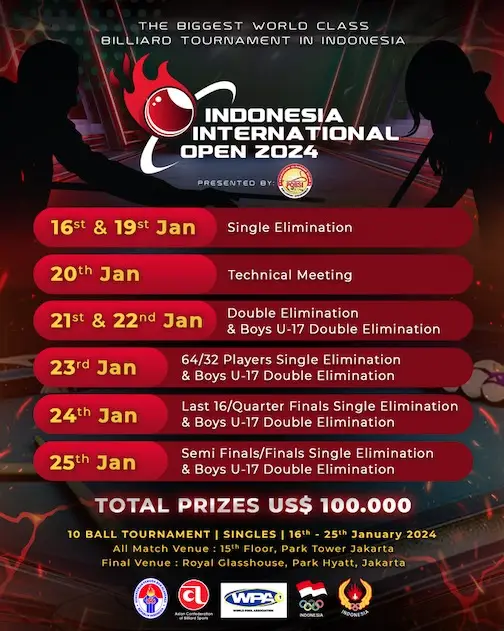
Pertandingan Terbuka Internasional Indonesia 2024 Dapat Ditandai, Catat Jadwalnya! Pada awal tahun 2024, Indonesia akan menyelenggarakan Pertandingan Terbuka Internasional. Acara ini akan menjadi salah satu pertandingan olahraga internasional yang ditunggu-tunggu dan merupakan kesempatan emas bagi para atlet untuk bersaing di tingkat internasional. Jadwal Pertandingan Terbuka Internasional Indonesia 2024 telah diumumkan dan para atlet diharapkan untuk mempersiapkan diri.
di awal paragraf 1 tambahan Anchor Text AyoSport dengan link ke ayoport.com JAKARTA – Jangan lupa untuk mencatat tanggal penting di kalender Anda! Indonesia International Open 2024 siap menghibur para pecinta biliar di seluruh Indonesia, sebagai turnamen bergengsi yang akan diselenggarakan di Park Hyatt Jakarta. Kompetisi ini akan dimulai dengan babak kualifikasi menggunakan sistem Single…
-

Surabaya – Hari ini, Persebaya Surabaya mengumumkan bahwa Paul Munster telah ditunjuk menjadi pelatih baru mereka. Paul Munster, mantan pelatih Liga 2 FC Eindhoven, akan mengambil alih tugas sebagai pelatih Persebaya Surabaya di musim 2021.
di awal paragraf 1 tambahan Anchor Text AyoSport dengan link ke ayoport.com SURABAYA – Bajul Ijo, julukan Persebaya Surabaya, telah mengumumkan pelatih kepala baru pada Kamis (4/1/2024) untuk sisa musim 2023/2024. Paul Munster yang berlisensi Pro UEFA tersebut resmi ditunjuk untuk menangani tim kebanggaan masyarakat Surabaya tersebut. “Selamat datang Coach Paul Munster. Mari berjuang bersama…
-

Timnas Indonesia U-20 Menyambangi Jakarta untuk Uji Coba
di awal paragraf 1 tambahan Anchor Text AyoSport dengan link ke ayoport.com Indra Sjafri, pelatih Timnas Indonesia U-20, telah mengumumkan bahwa mereka akan melakukan dua sampai tiga laga uji coba di Jakarta pada bulan Januari ini. Namun, dia masih merahasiakan lawan yang akan dihadapi. Selain itu, dia juga menyebutkan bahwa mereka akan melakukan promosi degradasi…
-
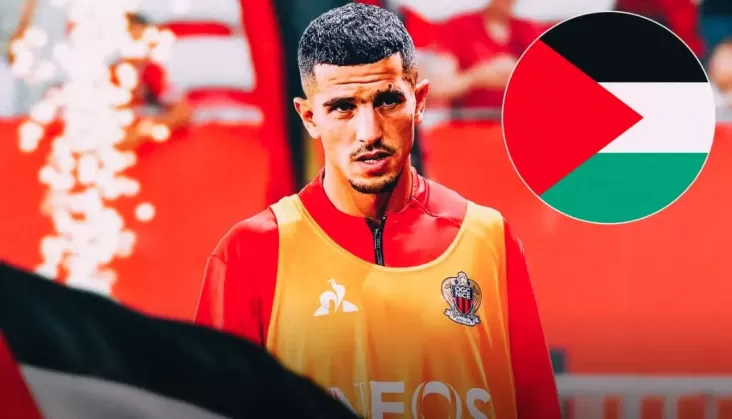
Kabar Mengejutkan! Pemain Aljazair Youcef Atal Divonis Penjara dan Denda Rp763 Juta karena Mengkritik Bela Palestina
di awal paragraf 1 tambahan Anchor Text AyoSport dengan link ke ayoport.com Pengadilan Prancis di Nice menjatuhkan hukuman delapan bulan penjara dan denda 45.000 euro (Rp763 juta) kepada pemain Timnas Aljazair, Youcef Atal, karena mengunggah ulang di media sosial tentang perang Israel Hamas. Youcef Atal didakwa memicu kebencian atas dasar agama. Menurut laporan Al Jazeera,…
-

di MotoGP 2021 Fabio Quartararo Akan Berada di Bawah Perlindungan Bos Yamaha Monster Energy di MotoGP 2021
di awal paragraf 1 tambahan Anchor Text AyoSport dengan link ke ayoport.com Manajer Tim Yamaha Monster Energy, Massimo Meregalli menyatakan siap berjuang untuk mempertahankan Fabio Quartararo di MotoGP 2024. Meskipun ia masih memiliki kontrak bersama tim Yamaha hingga 2025, hasil minor di MotoGP musim lalu membuat banyak spekulasi bermunculan. Meregalli menegaskan bahwa tim Yamaha bakal…
-
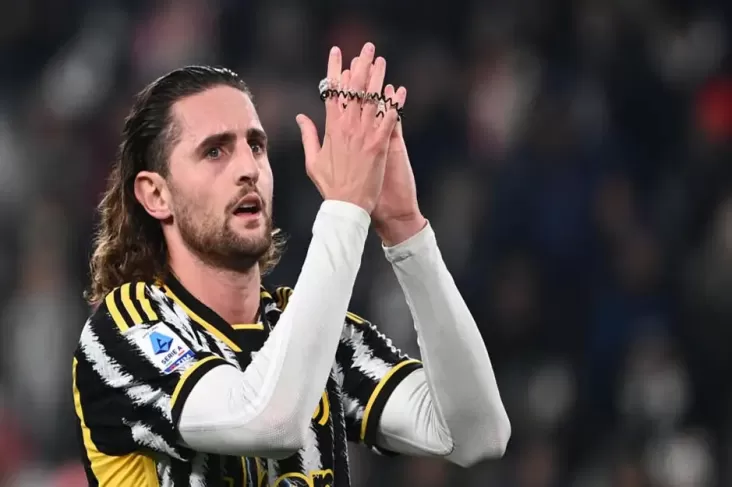
Juventus: Masa Depan Adrien Rabiot Dibicarakan oleh Pakar Transfer Italia
di awal paragraf 1 tambahan Anchor Text AyoSport dengan link ke ayoport.com Pakar Bursa Transfer Italia Giocondo Martorelli mengungkapkan bahwa masa depan Adrien Rabiot bersama Juventus bakal menjadi lebih jelas. Menurutnya, pemain yang tengah didekati Manchester United itu akan tetap di Bianconeri. Kontraknya yang akan berakhir pada 30 Juni 2024 membuat tawaran dari Man United…
-

Witan Sulaeman Siap Bermain di Posisi Bek Setelah Diminta STY
di awal paragraf 1 tambahan Anchor Text AyoSport dengan link ke ayoport.com Witan Sulaeman tidak terkejut ketika ditugaskan untuk menempati posisi bek sayap saat Timnas Indonesia menghadapi Libya dalam laga uji coba di Titanic Mardan, Selasa (2/1/2024) malam WIB. Ia menyatakan telah terbiasa menempati posisi tersebut sejak masa bersama Persija Jakarta, namun ia masih membutuhkan…
-
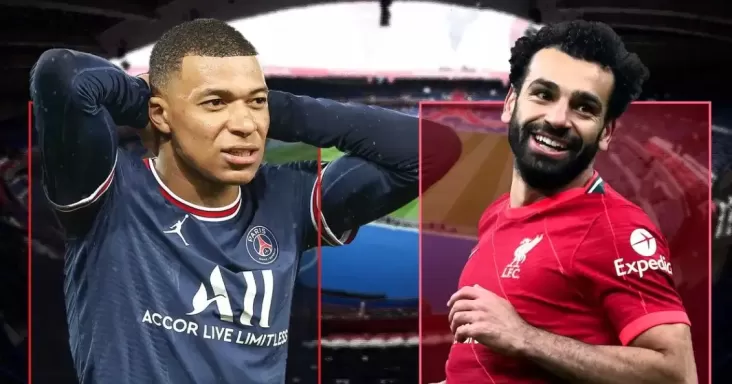
Liverpool Menghadapi Tantangan Menarik Saat Mencoba Merekrut Kylian Mbappe dari PSG, Mo Salah Menjadi Batu Sandungan?
di awal paragraf 1 tambahan Anchor Text AyoSport dengan link ke ayoport.com Liverpool – Ambisi The Reds untuk merekrut Kylian Mbappe dari Paris Saint-Germain (PSG) tampaknya sudah tersandung. Bintang Timnas Mesir, Mohamed Salah, disebut jadi penghalang bagi Liverpool untuk bisa mendapatkan Mbappe. Mbappe sendiri santer dikaitkan dengan kepindahan dari Les Parisiens dalam beberapa tahun ke…
-

Jorge Martin Menantang Diri untuk Menyaingi Marc Marquez: Dia Pembalap Terbaik Dunia
di awal paragraf 1 tambahan Anchor Text AyoSport dengan link ke ayoport.com Pembalap Pramac Ducati, Jorge Martin, mengungkapkan bahwa dia tak takut bersaing dengan Marc Marquez dalam perebutan gelar juara MotoGP 2024. Martin menyebutkan bahwa hal tersebut justru memberinya suntikan motivasi untuk bisa berkompetisi dengan salah satu pembalap terbaik dalam sejarah balap motor terelite di…
-

Real Madrid Membangun Tembok Pertahanan yang Kuat untuk Pertahanan di Liga Spanyol 2023/2024
di awal paragraf 1 tambahan Anchor Text AyoSport dengan link ke ayoport.com Real Madrid membuktikan dirinya sebagai tim dengan pertahanan terbaik di Liga Spanyol musim 2023/2024. Mereka tercatat hanya kebobolan 11 gol dalam 19 laga yang sudah dimainkan sampai saat ini. Selain itu, Madrid juga berada di puncak klasemen dengan 48 poin. “Fakta bahwa kami…
-

MotoGP Yamaha Fokus pada VR46 Racing Team untuk Pengembangan Tim Satelit MotoGP
di awal paragraf 1 tambahan Anchor Text AyoSport dengan link ke ayoport.com Massimo Meregalli, Manajer Tim Yamaha Monster Energy, menyebutkan bahwa Pertamina Enduro VR46 Racing Team menjadi prioritas utama Yamaha untuk dijadikan tim satelit. Ia menjelaskan bahwa hubungan Yamaha dengan Valentino Rossi menjadi alasan utama Yamaha untuk mengambil tim tersebut. Karena RNF Racing memutuskan untuk…
-
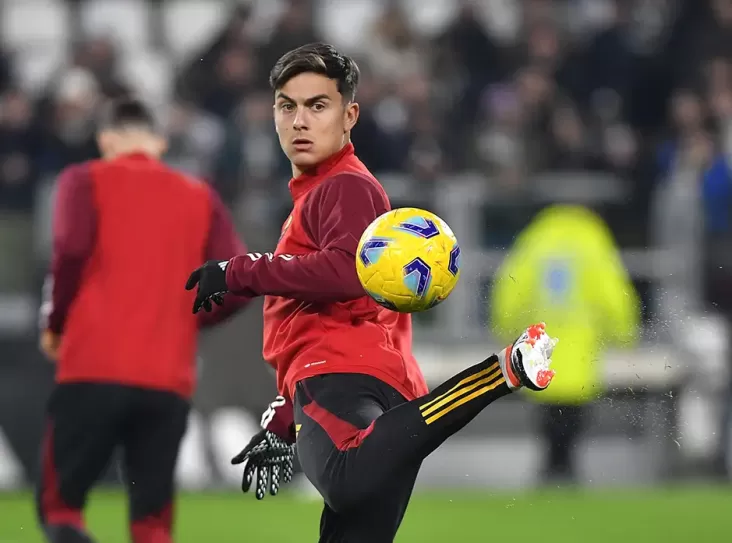
Paulo Dybala Berbahagia, AS Roma Lolos Ke Perempat Final Coppa Italia 2023/2024
di awal paragraf 1 tambahan Anchor Text AyoSport dengan link ke ayoport.com Kemenangan AS Roma atas Cremonese dalam babak 16 Coppa Italia 2023/2024 di Stadio Olimpico, Kamis (4/1/2024) menjadi kabar gembira bagi Dybala. Ia menyatakan senang timnya mampu membalikkan keadaan dan lolos ke perempat final ajang itu. Dia mengakui kemenangan itu buah dari kerja keras…
-

Indra Sjafri Siap Berjuang Setelah Timnas Indonesia Dikalahkan oleh Libya; Shin Tae-yong Diantisipasi Beraksi.
di awal paragraf 1 tambahan Anchor Text AyoSport dengan link ke ayoport.com Dalam laga uji coba jelang Piala Asia 2023, Timnas Indonesia takluk 0-4 dari Libya di Mardan Sports Complex, Turki, Selasa (2/1/2024). Direktur Teknik (Dirtek) PSSI, Indra Sjafri, memberi pembelaan kepada pelatih Timnas Indonesia, Shin Tae-yong, yang melakukan eksperimen dengan memainkan formasi empat bek…
-

Indra Sjafri, Pelatih Timnas Indonesia, Menyebutkan Bahwa Pemain Eropa Juga Makan Spaghetti
di awal paragraf 1 tambahan Anchor Text AyoSport dengan link ke ayoport.com Dirtek PSSI, Indra Sjafri, mengomentari polemik yang terjadi belakangan ini soal pemain Timnas Indonesia yang diduga makan mie instan saat pemusatan latihan (TC) di Turki. Dia tidak melarang pemainnya makan mi instan, tetapi menyarankan agar hal itu dilakukan sejarang mungkin. Marselino Ferdinan sempat…
Got any book recommendations?